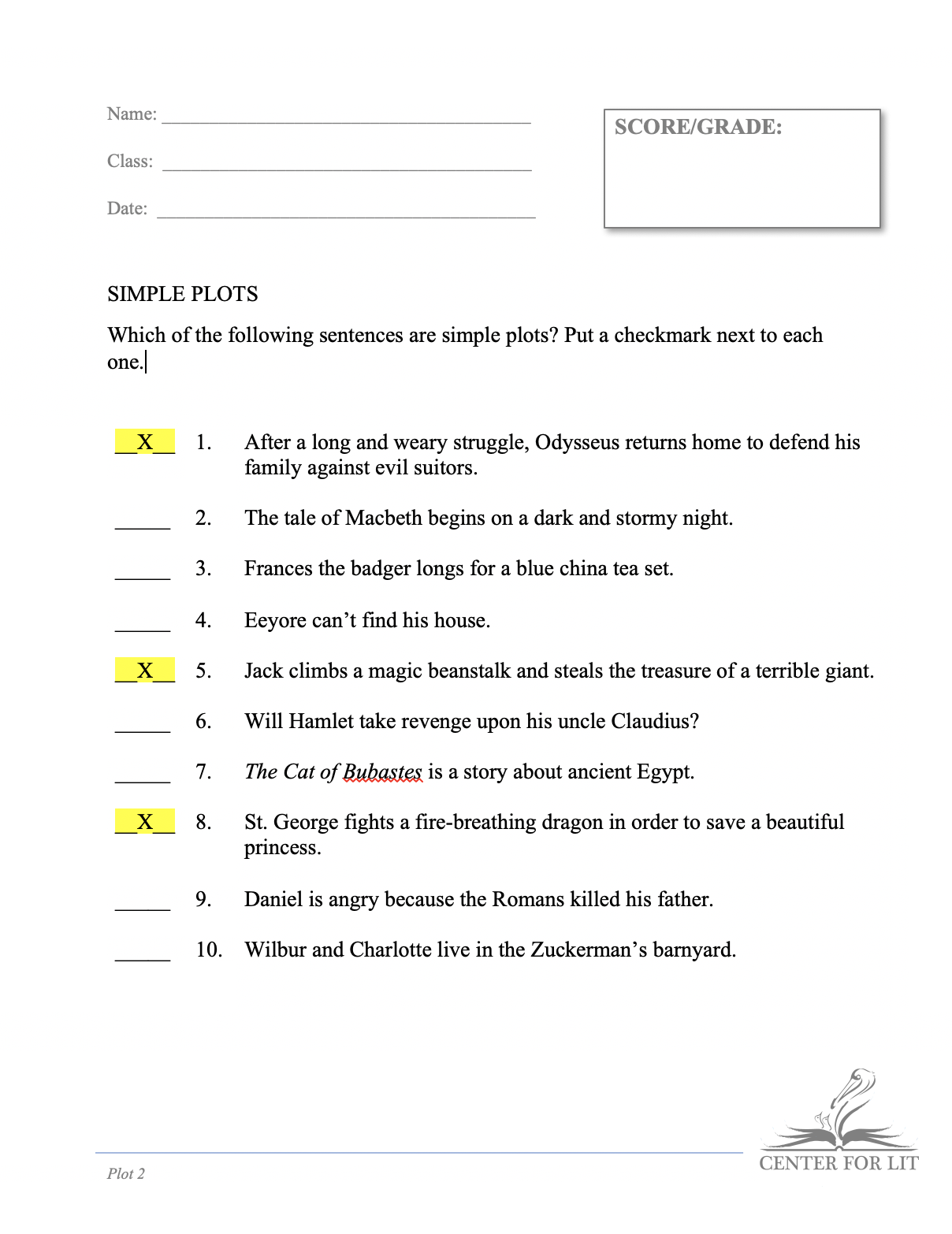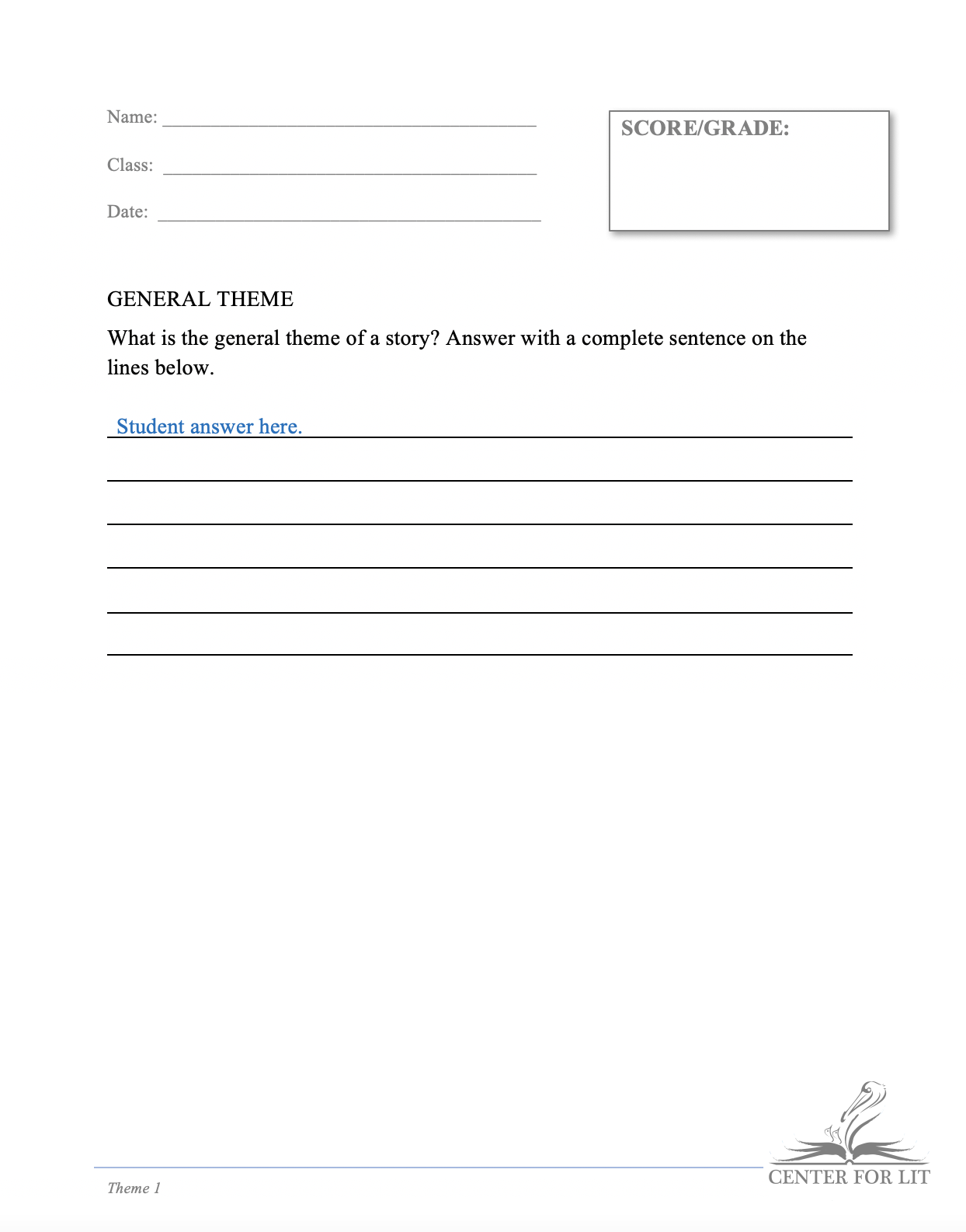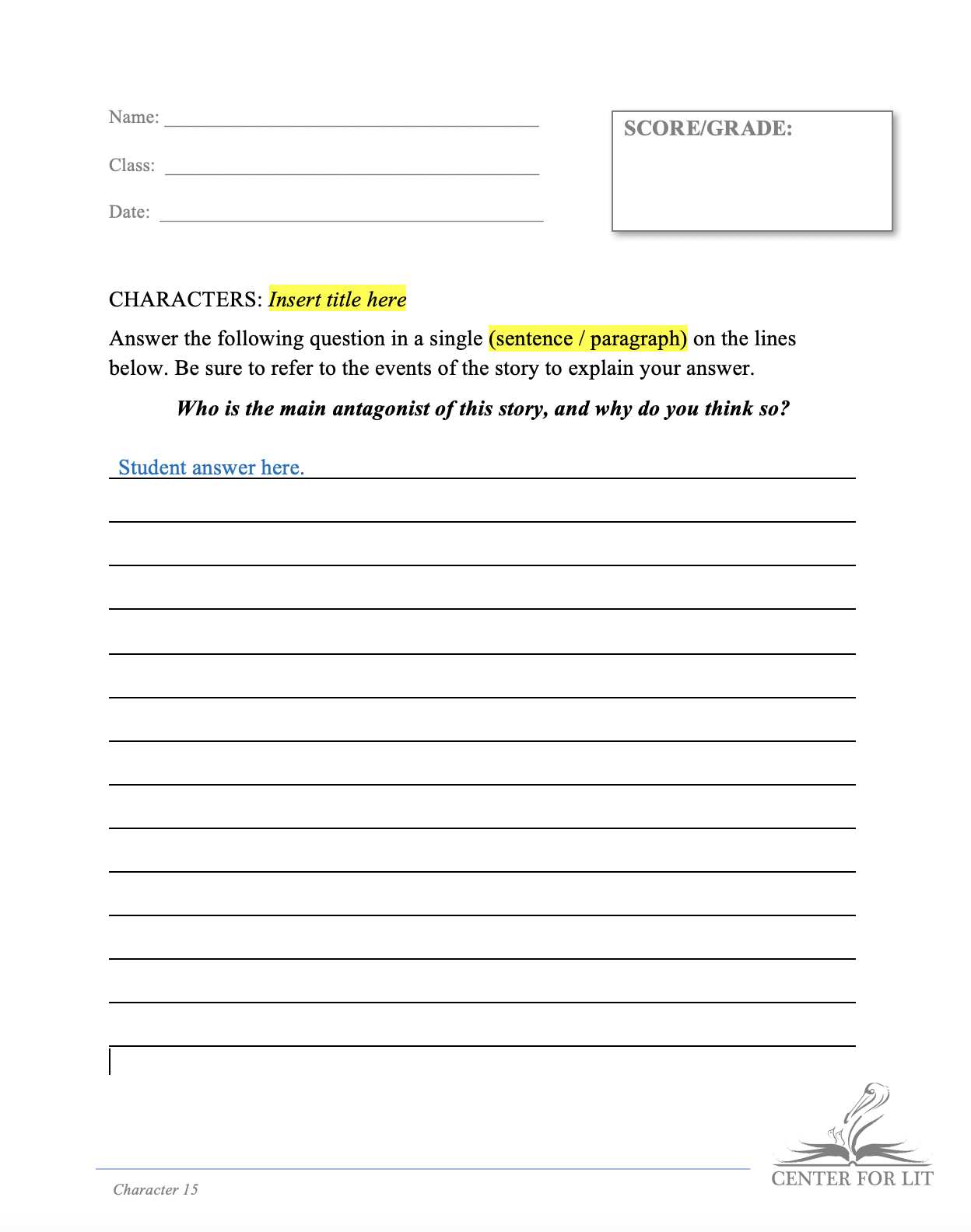Literary Core Skills
We’ve broken down the Teaching the Classics method into a set of discrete skills that correspond to each element of fiction. These “core skills” embody the stepping stones required to form good habits of reading and understanding literature. They can empower your student to achieve a thorough literary education, and they can also help you organize your teaching efforts and measure progress along the way!
Assignment Templates
For each and every core skill, we have created a set of ready-made lessons designed to encourage and measure student mastery of that skill. You can download, edit, and print these templates as handouts, worksheets, tests, or aids to note-taking. Our library contains more than 200 assignment templates, each one applicable to any work of literature. Whereas traditional worksheets tend to drain the life out of literature, these assignments capture the vitality of the Socratic method in a practical, tangible form.




